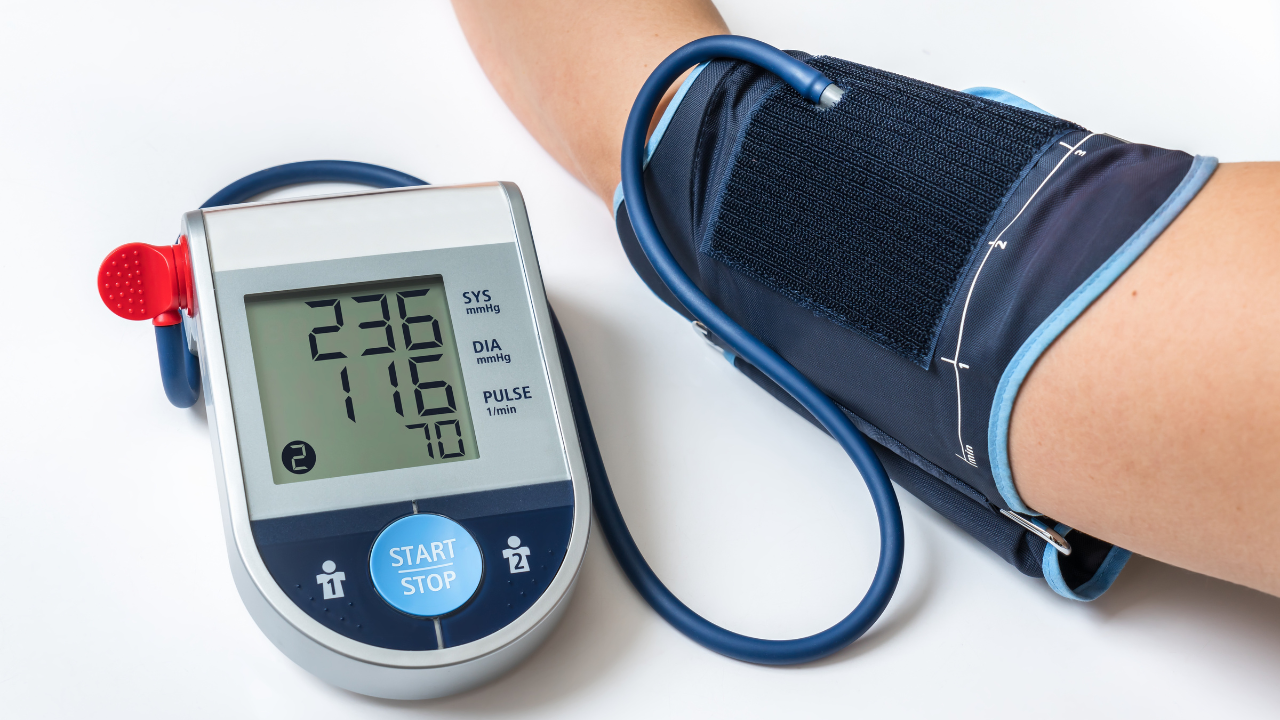Stroke is often thought to be an illness that attacks elderly people, but in reality, it can attack anyone regardless of their age. With sedentary and stressful lifestyles being the norm today, the risk is increasing even among people in their early 30s and 40s. Luckily, however, stroke is highly preventable. Three daily habits, as recommended by longevity experts and physicians specializing in healthy aging, can significantly reduce the stroke risk and support long-term heart and brain health.They are not challenging or expensive modifications. They are quite simple, science-supported habits that anyone can incorporate into their lifestyle, whether older or fitter.Dr. Vasilly Eliopoulos, MD and longevity doctor from Cornell, explains why these three habits are important for one to lead a healthy, disease-free lifestyle.
Maintain blood pressure levels at their best

High blood pressure is the most important modifiable risk factor for stroke. Gradually, it hurts the arteries in such a manner that they are more susceptible to blockage or rupture. These changes can potentially raise the risk of ischemic as well as hemorrhagic strokes.Having your blood pressure under control from home can be maintained on a regular basis if you keep track of it. The target is usually below 130/80 mm Hg (AHA), but the physician may assign a different target depending on your overall health or if any health condition already persists. In this, there is no one-size-fits-all approach, medications also play a huge role in this.One can have a healthy blood pressure by reducing sodium (found in salt), eating more foods high in potassium like bananas and greens, staying at a healthy weight, and getting regular exercise. Modifying little things like taking a 30-minute walk per day or eating fewer processed foods can add up over time.
Check heart rhythm regularly

Irregular rhythms of the heart, especially atrial fibrillation, are another leading cause of stroke. Atrial fibrillation can lead to blood pooling inside the heart and possible clotting. If a clot is transported to the brain, it can cause obstruction and trigger a stroke.Most people who have atrial fibrillation are not even aware they have it. So screening is a requirement regularly. It is easier now than ever before to keep an eye on your heart rhythm with modern technology. You can employ devices like smartwatches that have an ECG, which can detect the abnormalities early on. Or, you can learn to measure your pulse by hand and monitor for any abnormalities in your heartbeat.If one suddenly experiences, fatigue, shortness of breath, heart palpitations, consult a doctor. Early detection and timely treatment can reduce the risk of stroke significantly.
Wellness-driven daily routine

This regimen consists of a multitude of daily choices that work to protect both heart and brain. A healthy lifestyle means prioritizing every day what you can do to lower your risk, as compared to waiting until a health scare.Nutrition also matters. Following a diet high in vegetables, fruits, whole grains, nuts, seeds, and healthy fats like olive oil can potentially protect your blood vessels and reduce inflammation. The Mediterranean diet in particular is linked to lower stroke and cardiovascular risk.Physical exercise is another key element. Attempt to engage in a minimum of 150 minutes of moderate-intensity exercise per week, or cardio, depending upon your age. Even small movements like taking the stairs, instead of lift or stretching every hour (especially if one has a desk job) can aid in better blood circulation and improvement in overall cardiovascular health.Both chronic sleep and stress can also increase the risk of heart related ailments and also weaken the immune system. Incorporating some mindfulness techniques, even as simple as 5 minute meditation can be of huge help.
